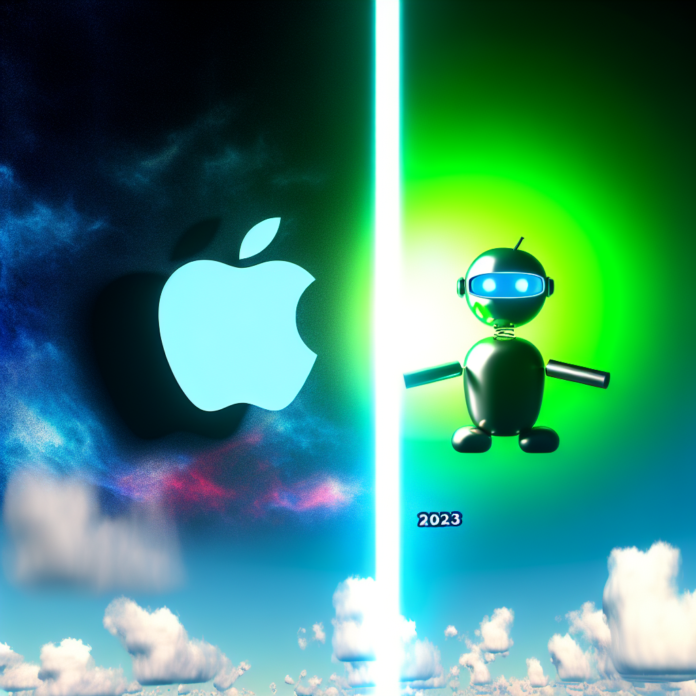Android vs. iOS: Which Operating System Reigns Supreme in 2023?
Imagine sitting at a café, watching people scroll through their phones. What’s on their screens might be different, but the underlying battle between Android and iOS is something we all witness every day. As of 2023, this fight for dominance continues, with fierce loyalty displayed by fans of both operating systems. So, which one really comes out on top in the latest showdown? Let’s dive in!
The Youthful Democratization of Android
Android has taken the tech world by storm. With over 2.5 billion devices running this operating system globally, it’s no wonder it holds more than 70% of the smartphone market share. This massive reach results from not only its affordability but also its sheer versatility. Whether you’re looking for an entry-level device or a high-end flagship phone, there’s an Android that fits your budget and needs.
Take, for example, the Samsung Galaxy series. With options ranging from the budget-friendly Galaxy A series to the premium Galaxy S and Z lines, Android accommodates everyone. As someone who once owned a budget Android, switching to a high-end one almost felt like unlocking new levels in a video game. The accessibility of such a spectrum is an undeniable strength.
The Allure of iOS: A World of Exclusivity
On the flip side, we have iOS, Apple’s operating system, which may not rule the numbers but certainly captures a heartwarming niche. With only around 1 billion devices, iOS claims about 27% of the global market. What’s the catch? It’s largely about the experience. Users appreciate the seamless integration of hardware and software and the elite ecosystem that Apple has built, which includes everything from AirDrop to universal clipboard functionality.
Consider the Apple fanatics who proudly carry around their iPhones, Apple Watches, and MacBooks. The synchronicity within this ecosystem often leads to enhanced productivity. For instance, they can start an email on their iPhone and finish it on their Mac without missing a beat. This sense of community fosters not only loyalty but also user satisfaction.
User Experience and Interface: Apples to Oranges
When it comes to user experience, the debate becomes even more passionate. Android prides itself on customization. Want to change your home screen layout, download third-party apps, or tweak your settings? Android has your back. It’s like having a customizable house—you can paint the walls any color you like and furnish it however you want.
In contrast, iOS offers a polished and consistent user experience. Everything just works, and the design principles are closely guarded to ensure smooth navigation. For instance, even switching between apps feels fluid on an iPhone, almost like you’re flipping through pages of a well-organized book. It’s this simplicity and predictability that make iOS particularly appealing for less tech-savvy users.
App Store vs. Google Play: Quality or Quantity?
Now, let’s talk apps. The Google Play Store boasts millions of applications, many available for free. This treasure trove gives Android users the freedom to explore a vast array of options. However, with great power comes great responsibility; more options can lead to lower-quality apps and a confusing user experience.
In contrast, the Apple App Store is often lauded for its strict curation, resulting in generally higher-quality offerings. Developers usually launch their apps on iOS first, so if you’re waiting for that hot new app, there’s a solid chance it will hit iPhones before Android devices. As an Android user, I’ve often played the waiting game, itching for apps exclusive to iOS. That said, the existence of popular cross-platform apps does mitigate this issue.
Security: Who’s the Victor?
In a world where data breaches are a dime a dozen, security is paramount. iOS stands out for its robust security measures. Apple’s controlled environment prevents outside threats more effectively than Android’s open framework. For many users, knowing that their personal information is safer can tip the scales when choosing an operating system.
Nonetheless, Android is not defenseless. While it may have vulnerabilities, ongoing updates and the introduction of features like Google Play Protect have enhanced its security architecture. For developers, the opportunity to create a more customized application means building strong security measures right from the start.
Final Thoughts: Making the Call
So, who reigns supreme in 2023? The answer is, it depends. If you crave customization, diversity, and flexibility, Android might be your ultimate choice. On the other hand, if you prioritize a cohesive ecosystem, high-quality apps, and top-notch security, iOS may be your best bet.
Reflecting on my own tech journey, I’ve dipped my toes in both lakes and found joy in each. At the end of the day, the best operating system for you is the one that fits your lifestyle, needs, and values. Whether you’re Team Android or Team iOS, there’s comfort in knowing that innovation will continue, each platform striving for excellence.
Feel free to add external links based on your SEO strategy!

